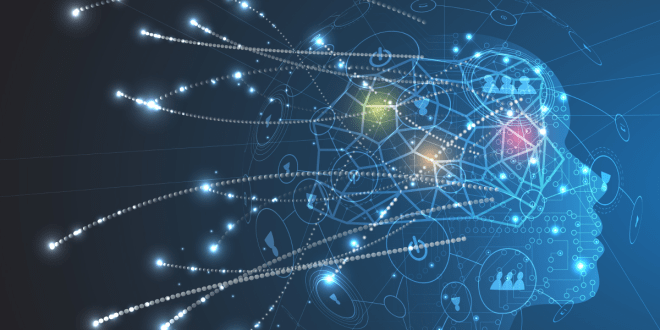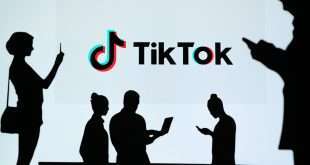In the ever-evolving landscape of web technology, artificial intelligence (AI) has emerged as a driving force behind web personalization. Gone are the days of one-size-fits-all approaches to web development. Today, AI is revolutionizing how websites are designed, developed, and presented to users, creating personalized and immersive online experiences. In this comprehensive blog, we will explore the role of AI in web personalization, its impact on advanced web technologies, and how it is transforming the realm of web computing and hosting.
Understanding Web Personalization and AI
Web personalization is the practice of tailoring a website’s content, layout, and user experience to cater to individual users’ preferences and needs. AI, in this context, plays a pivotal role by analyzing vast amounts of user data, including browsing behavior, location, demographics, and historical interactions, to deliver personalized content recommendations in real-time. This level of personalization enhances user engagement and satisfaction, ultimately leading to higher conversion rates and customer loyalty.
AI-Powered Recommender Systems
At the core of web personalization lies AI-powered recommender systems. These sophisticated algorithms use machine learning techniques to analyze user data and predict their preferences accurately. The recommender systems then suggest relevant products, articles, or services, creating a highly personalized browsing experience. Examples of AI-powered recommender systems include product recommendations on e-commerce platforms, content suggestions on media websites, and personalized playlists on music streaming platforms.
Natural Language Processing (NLP) and Chatbots
AI’s advancement in natural language processing (NLP) has significantly impacted web personalization. Chatbots, powered by NLP algorithms, can engage users in dynamic conversations, understanding their queries, and providing relevant information in real-time. These chatbots act as virtual assistants, offering personalized customer support, guiding users through websites, and facilitating seamless interactions.
AI-Driven Content Creation
Content creation has seen a shift with AI entering the scene. AI-powered tools can now generate highly relevant and engaging content, reducing the manual efforts of content creators. These tools use natural language generation (NLG) to create personalized blog posts, social media updates, and product descriptions. While AI assists in content creation, human creativity and expertise remain indispensable in providing unique and compelling perspectives.
AI and Web Development Technologies
AI’s impact extends to web development technologies, where it simplifies and streamlines the development process. AI-powered code generators, for instance, can automatically write code based on high-level instructions, expediting the development of websites and web applications. Additionally, AI-driven testing tools enable developers to identify and fix bugs, enhancing the overall performance and user experience of websites.
Web Hosting and AI
AI has made significant contributions to the domain of web hosting as well. AI-powered hosting solutions can efficiently allocate resources based on website traffic patterns, ensuring optimal performance and minimizing downtime. AI-driven security systems enhance website protection by continuously analyzing traffic and identifying potential threats.
Cloud Computing and AI
Cloud computing and AI are mutually reinforcing technologies. Cloud-based AI services offer scalable and cost-effective solutions for businesses looking to leverage AI capabilities without significant infrastructure investments. Additionally, AI improves cloud computing by optimizing resource allocation, reducing latency, and enhancing data security.
The Future of AI in Web Personalization
As AI continues to evolve, the future of web personalization appears promising. We can expect even more intelligent recommender systems, hyper-personalized user experiences, and seamless interactions with chatbots. AI will enable businesses to understand user behavior at an unprecedented level, leading to better decision-making and user-centric web design.
Final Words
In conclusion, artificial intelligence is undoubtedly the driving force behind web personalization. From creating tailored content to optimizing web development and hosting, AI’s impact is far-reaching. Embracing AI-driven technologies is crucial for businesses seeking to stay competitive in the dynamic digital landscape. The age of personalized web experiences has arrived, and AI is at the heart of this transformation.
Commonly Asked Questions
Q1. How does AI personalize web content?
AI personalizes web content by analyzing user data and behavior, making accurate predictions, and suggesting relevant content to individual users in real-time.
Q2. Can AI replace human content creators?
While AI can assist in content creation, human creativity and expertise are still essential to provide unique and compelling perspectives that resonate with audiences.
Q3. How does AI impact web development technologies?
AI streamlines web development by automating code generation and testing processes, leading to faster and more efficient development cycles.
Q4. What role does AI play in cloud computing?
AI optimizes cloud computing by enhancing resource allocation, reducing latency, and improving data security for businesses utilizing cloud-based AI services.
Q5. What does the future hold for AI in web personalization?
The future of AI in web personalization looks promising, with even more intelligent recommender systems, hyper-personalized user experiences, and seamless interactions with chatbots on the horizon.
 webfily
webfily



